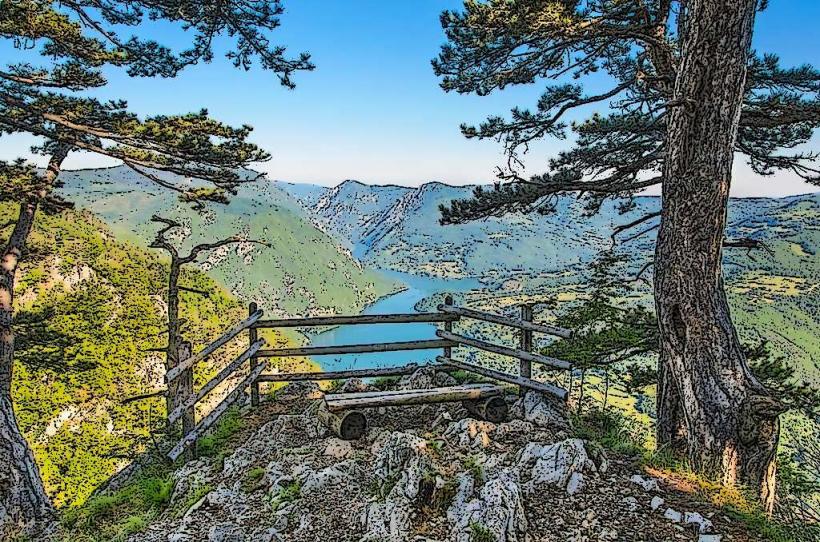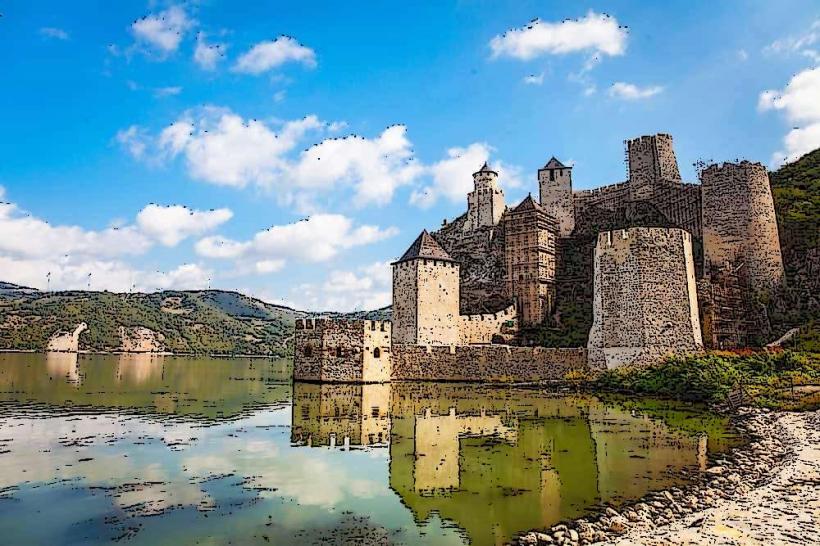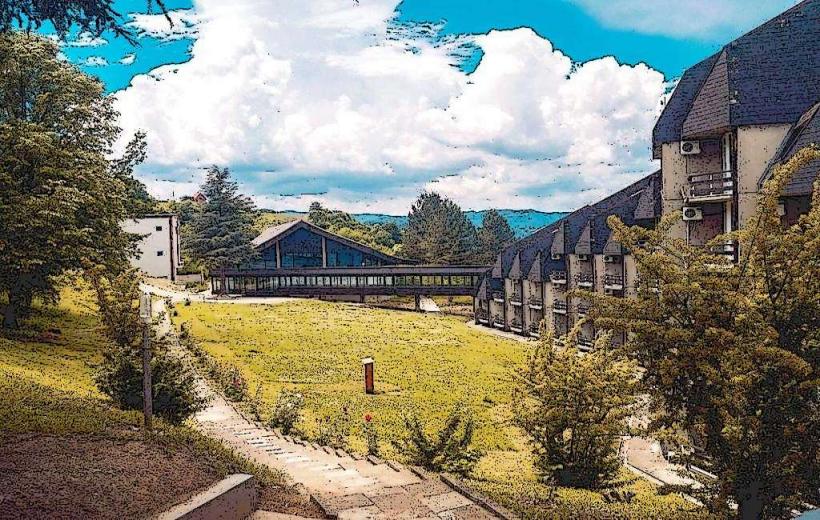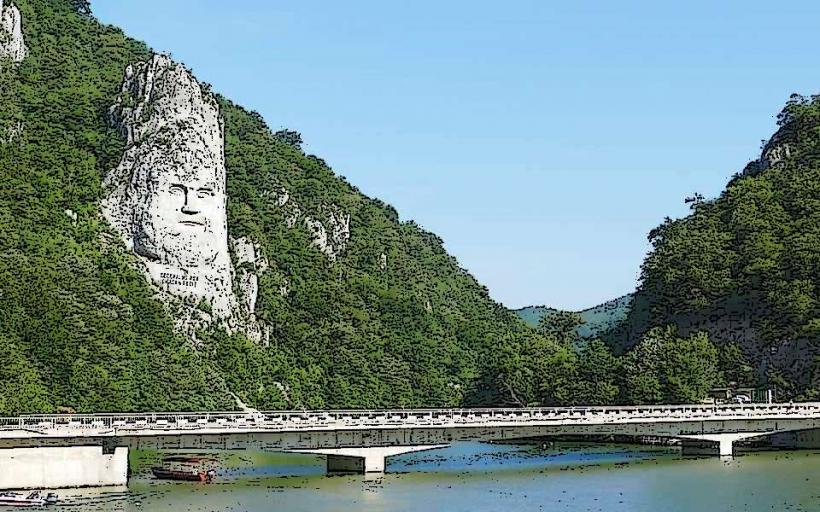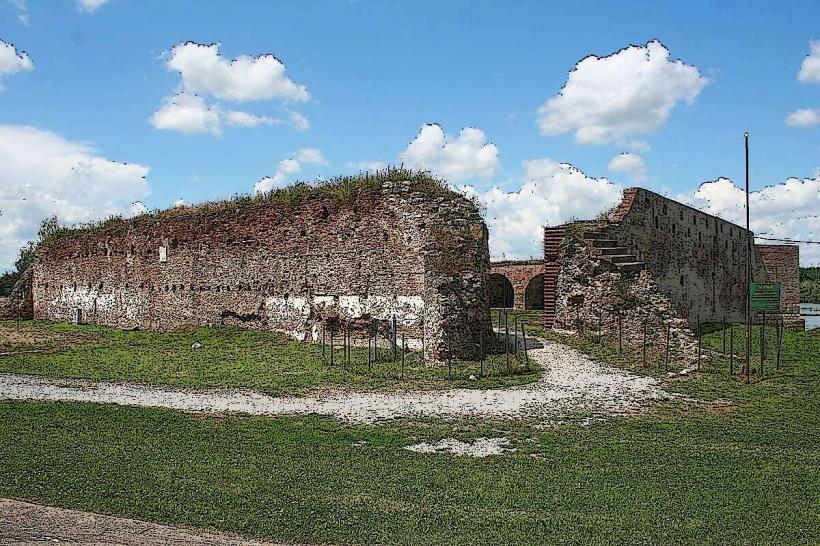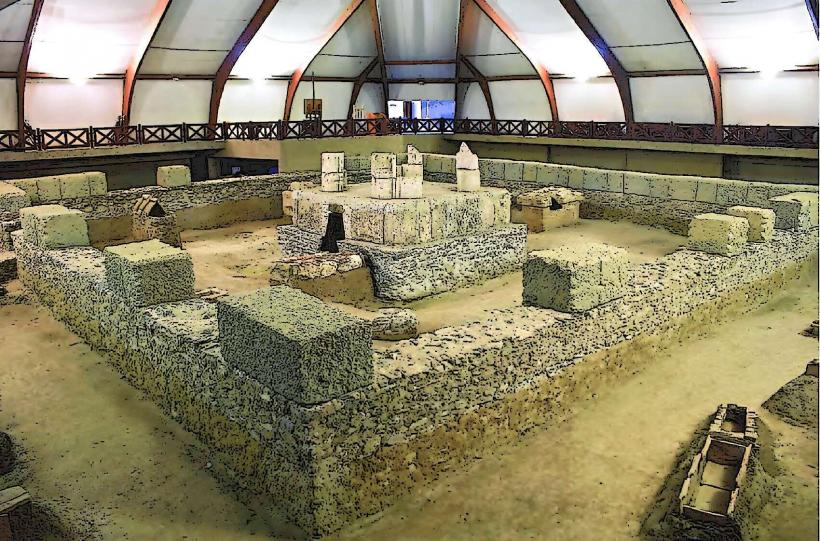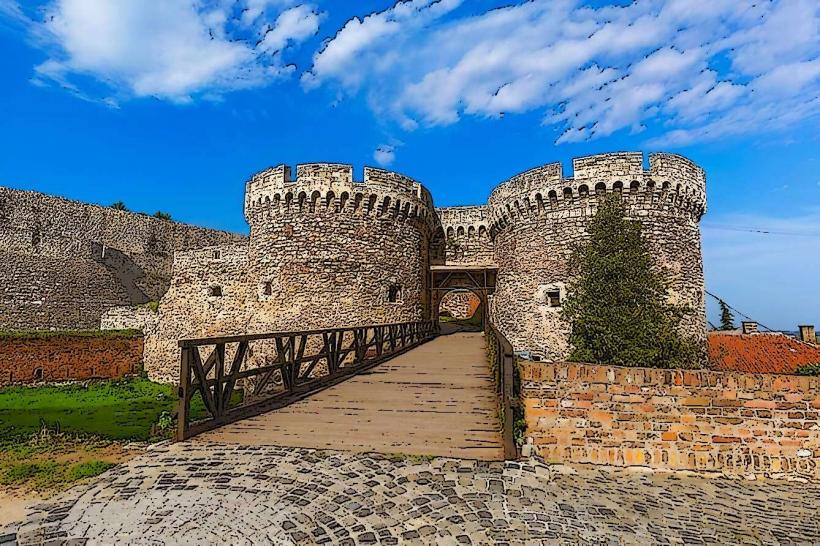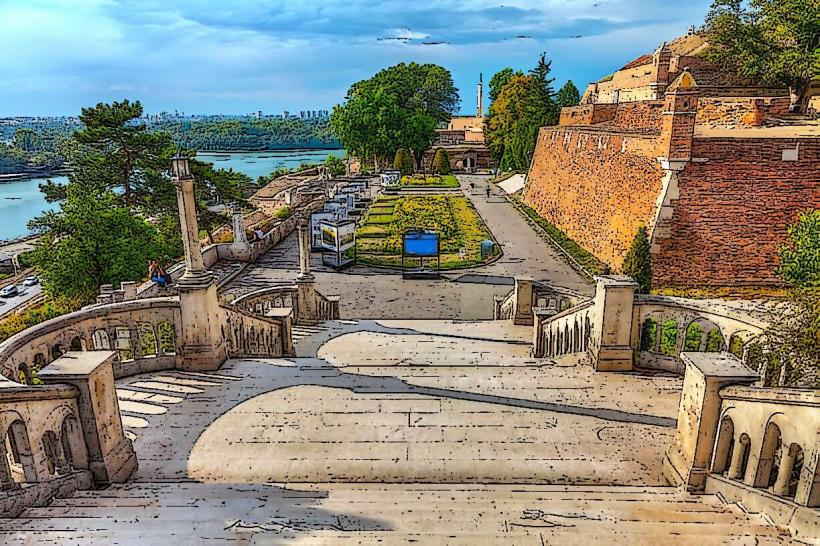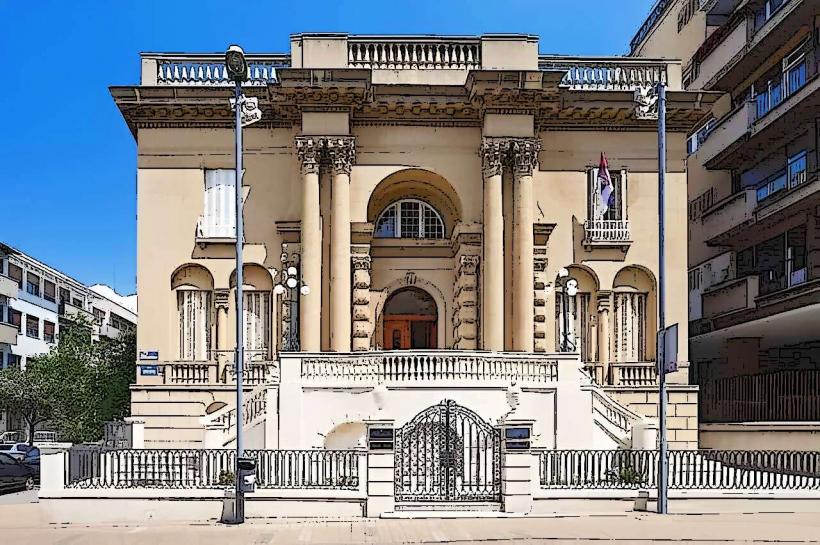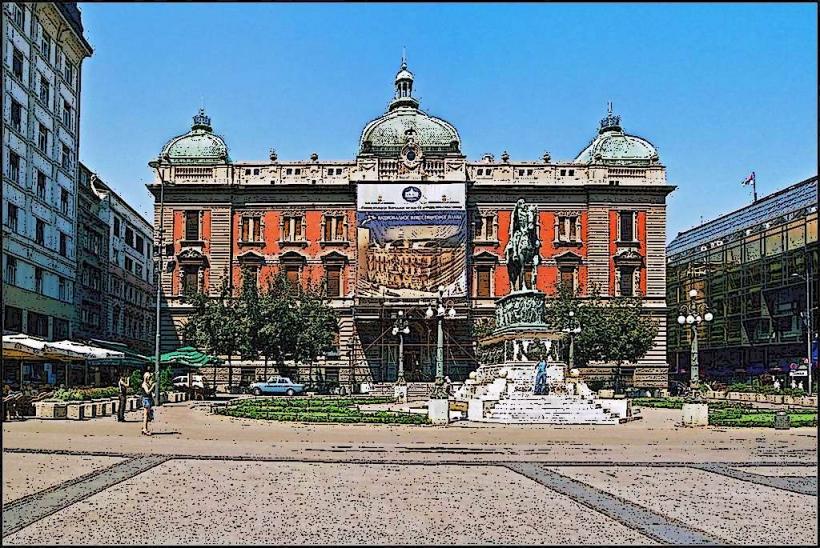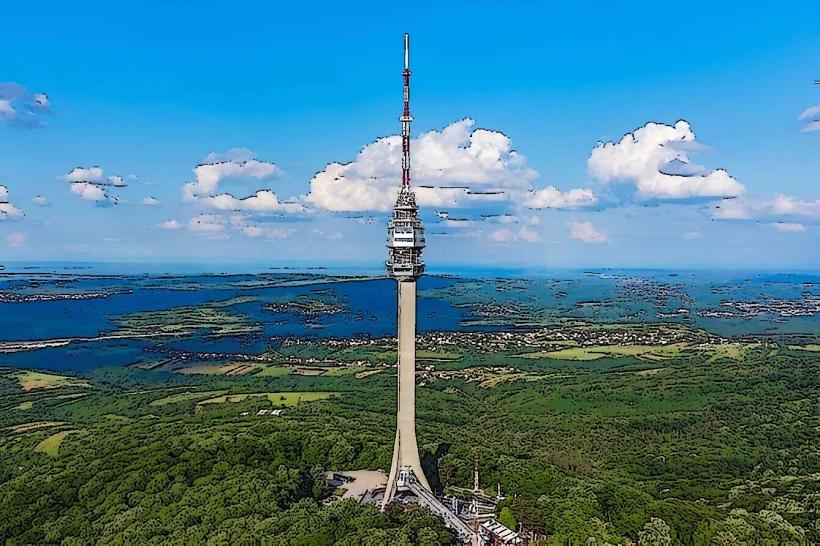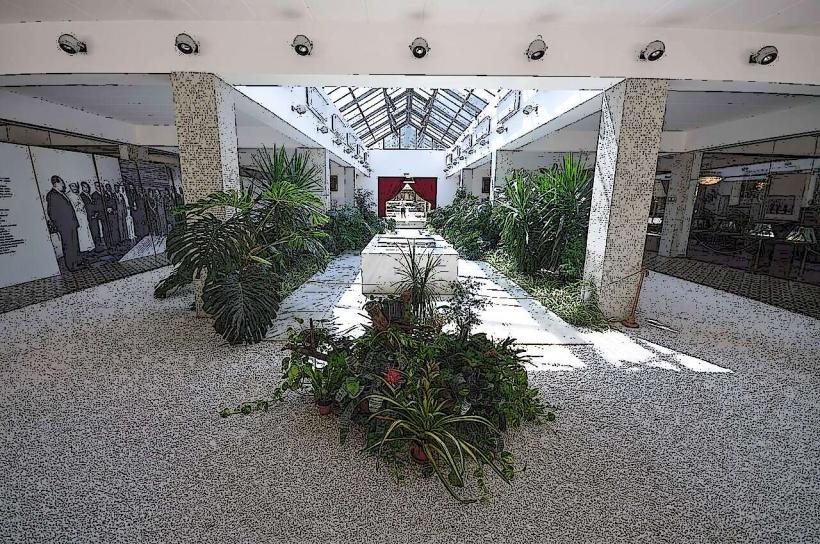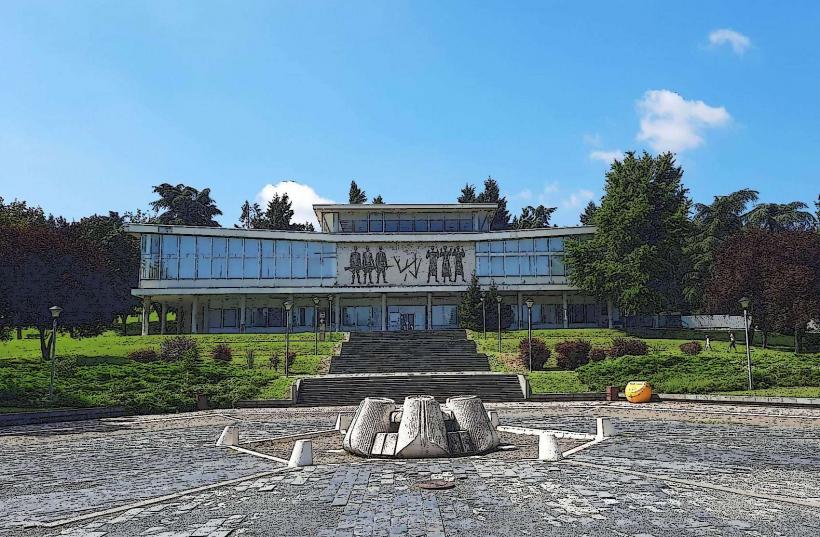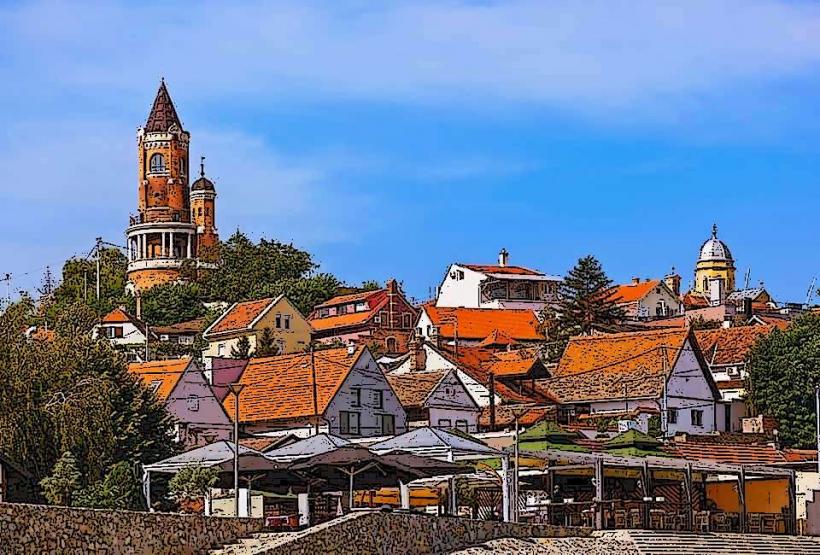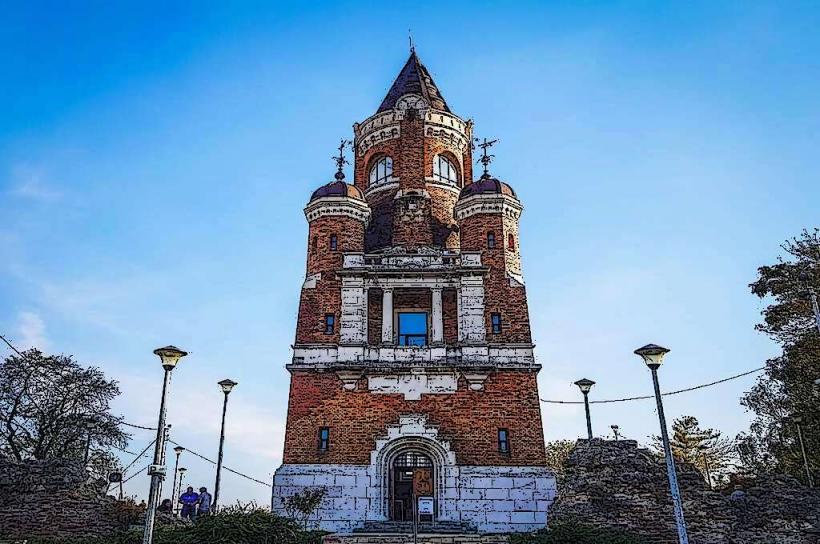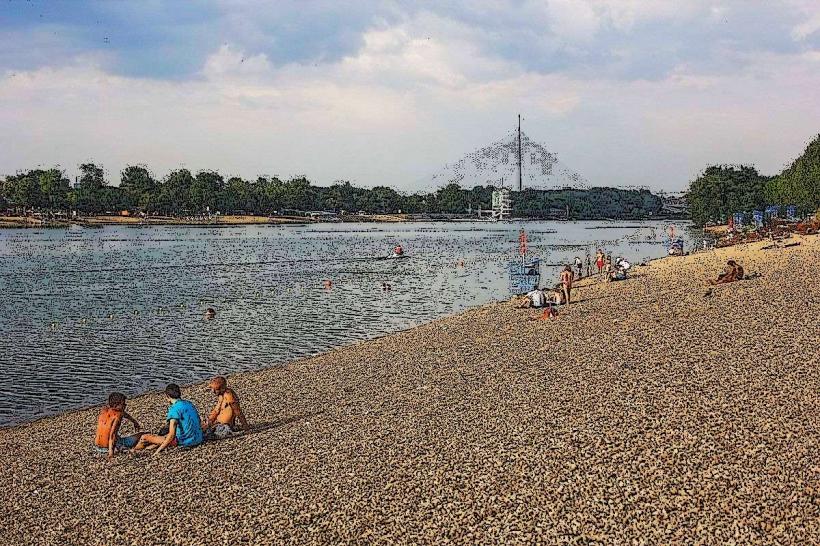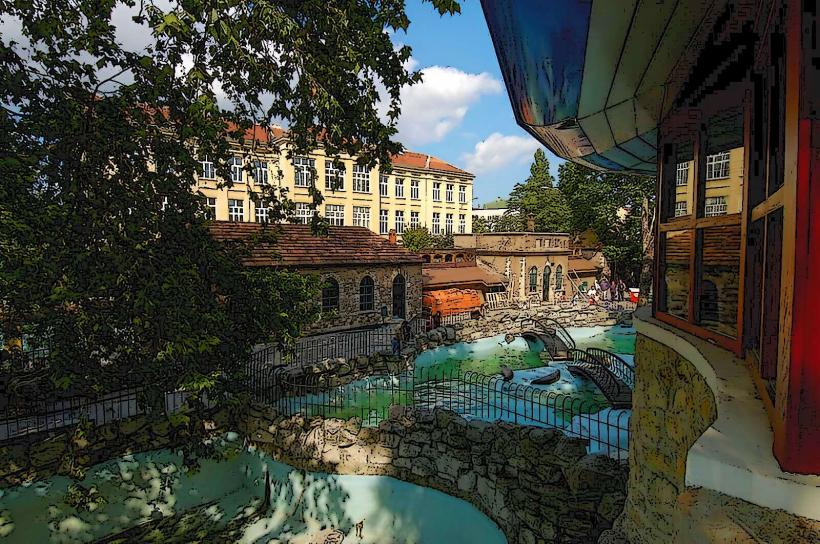Information
Landmark: Old Hydro Plant in UžiceCity: Belgrade
Country: Serbia
Continent: Europe
Old Hydro Plant in Užice, Belgrade, Serbia, Europe
The Old Hydro Plant in Užice (Serbian: Stara hidroelektrana u Užicu) is an important historical and industrial landmark located in the town of Užice, in southwestern Serbia. Built in the early 20th century, this hydroelectric power plant was one of the first of its kind in Serbia and the Balkans, marking a significant step in the development of the country's energy infrastructure.
History of the Old Hydro Plant in Užice
Early 20th Century Development:
- The Old Hydro Plant was constructed between 1900 and 1901, making it one of the earliest hydroelectric plants in Serbia. It was designed to harness the power of the Đetinja River to generate electricity, which was an important technological advancement at the time.
- The hydroelectric power plant was built during a period of rapid industrialization and modernization in Serbia, particularly during the reign of King Aleksandar Obrenović. The energy generated by the plant was initially used to power industrial machinery and street lighting in the town of Užice, which was experiencing significant growth at the time.
Technological Innovation:
- At the time of its construction, the Old Hydro Plant was a cutting-edge technological achievement. It was equipped with a turbine and generator system that could produce electricity using the force of water. This method of generating electricity through hydropower was revolutionary and set the stage for the development of other hydroelectric plants in the region.
- The plant’s success demonstrated the potential of hydroelectric power and contributed to the wider spread of this energy source across the Balkans and Europe.
Role in the Development of Užice:
- The establishment of the Old Hydro Plant was a major milestone in the industrialization of Užice. The plant provided power to local factories, homes, and businesses, contributing to the town’s economic growth and modernization.
- The plant also played a key role in improving the quality of life for residents by providing them with a reliable and sustainable source of electricity. This was particularly important at a time when many parts of Serbia were still without access to modern energy sources.
Decline and Preservation:
- Over time, as the demand for electricity grew and technology advanced, the Old Hydro Plant in Užice became less efficient compared to newer, larger plants. By the mid-20th century, its role in power generation was largely replaced by more modern hydroelectric plants in the region.
- Despite its decline in operational use, the Old Hydro Plant remains an important symbol of Užice’s industrial heritage and its role in the early history of Serbia’s electrical infrastructure.
- In recent years, the plant has been preserved as a cultural monument, and it is recognized as a historical landmark. Efforts have been made to protect the building and its machinery, showcasing the town’s industrial past.
Architecture and Features
Location and Structure:
- The Old Hydro Plant is situated along the Đetinja River, which provided the necessary water flow to drive the turbines and generate electricity. The plant is located on the banks of the river, utilizing its natural gradient to harness water power efficiently.
- The plant’s building is an example of early 20th-century industrial architecture, combining functional design with the needs of power generation. The structure is built from stone and brick, and the interior houses the original equipment that was used for power generation, including the water turbines and generators.
Machinery and Equipment:
- The plant was equipped with a Francis turbine system, a type of water turbine commonly used in hydroelectric power plants, which converts the energy of flowing water into mechanical energy. The turbine would have been connected to a generator that converted the mechanical energy into electrical energy.
- Although much of the original machinery has been replaced or updated in later years, parts of the original equipment have been preserved for historical and educational purposes. The presence of these early power-generating machines gives visitors a glimpse into the industrial history of the region.
The Turbine Hall:
- One of the most interesting features of the Old Hydro Plant is its turbine hall, where the actual process of hydropower generation took place. The hall is home to the original turbine system and other components that were used in the power generation process.
Modern Significance and Role
Cultural Heritage and Tourism:
- Today, the Old Hydro Plant in Užice serves as an important tourist attraction and an educational site. Visitors to the plant can learn about the history of hydropower and the development of electrical energy in Serbia. The building houses a small museum that showcases the history of the plant, the technological advancements of the time, and the industrial heritage of Užice.
- The Old Hydro Plant is a symbol of Serbia's early industrial revolution and a testament to the role of technology in shaping the country’s development. It provides visitors with a tangible link to the past and serves as a reminder of the important contributions of the industrial sector to modern society.
Environmental and Renewable Energy Significance:
- As a hydroelectric power plant, the Old Hydro Plant is an early example of renewable energy production. In an era when environmental concerns are becoming increasingly important, the plant's role in harnessing the natural power of water serves as a reminder of the importance of sustainable energy sources.
- Serbia continues to rely on hydroelectric power for a significant portion of its electricity needs, and the Old Hydro Plant remains an important historical link to this sustainable energy tradition.
Visiting the Old Hydro Plant
- Location: The Old Hydro Plant is located in Užice, on the banks of the Đetinja River, a short distance from the town center.
- Access: The plant is open to visitors, and guided tours are available. These tours offer an opportunity to learn about the history of the plant, its technological significance, and its role in the development of Serbia's electrical infrastructure.
- Best Time to Visit: The plant can be visited year-round, with guided tours available. However, the best time to visit is during the spring and summer months, when the weather is pleasant and the surrounding landscape is at its most beautiful.
Conclusion
The Old Hydro Plant in Užice is a historically significant site that represents the early days of industrialization and energy production in Serbia. Built in the early 20th century, it played a crucial role in the development of the town of Užice and the wider region. Today, it serves as a cultural landmark and a symbol of Serbia's industrial heritage. Visitors to the plant can gain valuable insights into the technological advancements of the past and the country’s continued reliance on renewable energy sources like hydropower.

